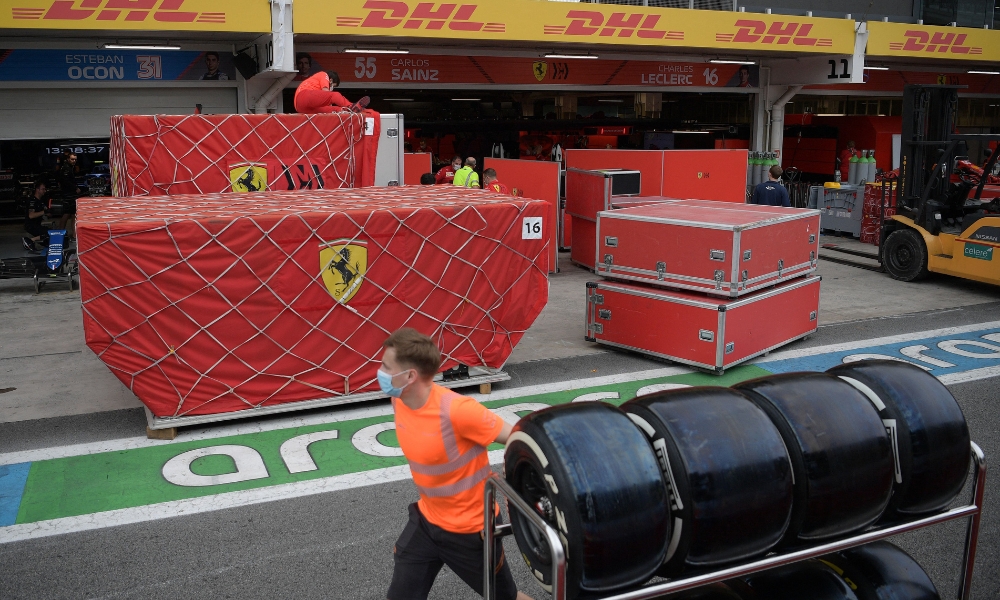- F1 sees 13% reduction in carbon emissions in 2022 compared to 2018 baseline
- Series will meet Paris Agreement emissions target if it continues at current rate
- Formula One Management records 30% fall in gender pay gap between 2017 and 2022
Formula One has claimed it is on track to meet its 2030 Net Zero target and launched its first impact report as part of an overarching sustainability update.
The headline figure is that the series has reported a 13 per cent reduction in carbon emissions in 2022 compared to the 2018 base line. This leaves 37 per cent of further reductions required to hit the minimum 50 per cent reduction by 2030.
This minimum reduction is a requirement laid out in the Paris Agreement, and Formula One will meet this if it continues at its current pace of a 13 per cent reduction every four years.
It is worth noting that the environmental strides made in 2020 and 2021 were helped by the impact of Covid-19 on overall travel, which makes 2022 the first season that can be truly compared to the 2018 baseline since then.
Data for 2023 is currently in the collection phase with Formula One stakeholders, but there are reasons to be hopeful for a significant reduction moving forward.
Last season saw promising trials like the low-carbon energy production for the Austrian Grand Prix, which reduced emissions from the pit, paddock and broadcast compound by 90 per cent compared to 2022.
Furthermore, the European leg of the season was delivered by DHL’s biofuel-powered trucks, reducing carbon emissions by 83 per cent versus the previous year.
Formula One events have also made strides, as 75 per cent of promoters powered aspects of their events using renewable energy, an increase from 50 per cent in 2022.
Formula One and its ten teams also became the first championship to retain their three-star environmental accreditation from the International Automobile Federation (FIA).
- How AWS is supporting F1’s sustainability drive using the cloud and AI
- Analysing Saudi Arabia’s growing influence in motorsport
“Sport can ignite passion and shine a light on the world around us,” said Ellen Jones, head of environmental, social and governance at Formula One. “At Formula One, we take this privilege seriously and are committed to continually improving our operations whilst also showcasing technologies of the future.
“To achieve this, we are integrating sustainability across all departments within Formula One as well as with key stakeholders across our sport. Our aim is to empower the wider Formula One community to do what it does best in finding solutions at pace.”
Moving forward, the series will look to invest in an alternative fuels strategy across all parts of its operation, including the delivery of Sustainable Aviation Fuel (SAF) in air freight, biofuels for road and sea freight, and 100 per cent sustainable fuel for the cars from 2026.
Formula One also wants to create paddock-wide solutions to reduce energy consumption and further transition operations to renewable options across all stakeholders.
Ideally, the series wants to reduce its reliance on physical infrastructure, change the mode of freight transport to less carbon-intensive options, such as sea freight, and reduce the amount of equipment that is required through investment in new technologies.
Sustainability, though, does not just apply to environmental efforts. The series, its teams and the FIA hosted STEM days in schools across the UK for more than 350 children that meet Engineering UK’s equality, diversity and inclusion criteria.
In lieu of this, the first cohort of students from Formula One’s engineering scholarship took up their placements within teams. By 2025, the series claims it will have supported 50 students through this programme.
In addition, the gender pay gap in Formula One Management has fallen by 30 per cent since 2017 to its current standing of 20.7 per cent.
BlackBook says…
Formula One’s very first impact report highlights that the series continues to take sustainability more seriously, even if publishing it days after revealing a mammoth 24-race global calendar for 2025 is conspicuous.
The series should be commended on efforts to regionalise its calendar. However some outliers remain, including a three-race run of Saudi Arabia, Miami and Italy. Yet, the topline figures from this impact report show that Formula One is heading in the right direction.
It will be difficult to reconcile the series’ environmental efforts with an ever-increasing, ever-globalising calendar. As a result, Formula One’s main priority remains finding an effective solution to its substantial emissions from logistics and travel.

BlackBook Motorsport Forum is back for its 10th anniversary edition. Join us in London this April to navigate the transformation of motorsport and the trends driving the industry forward into the next decade.

